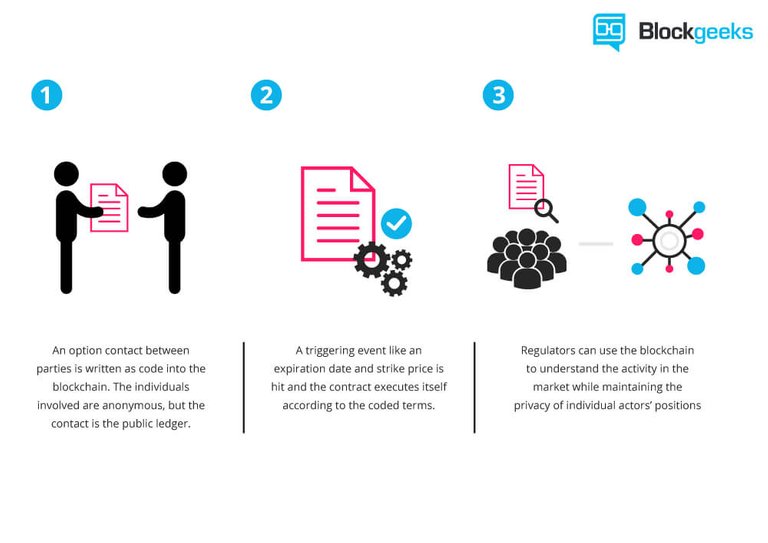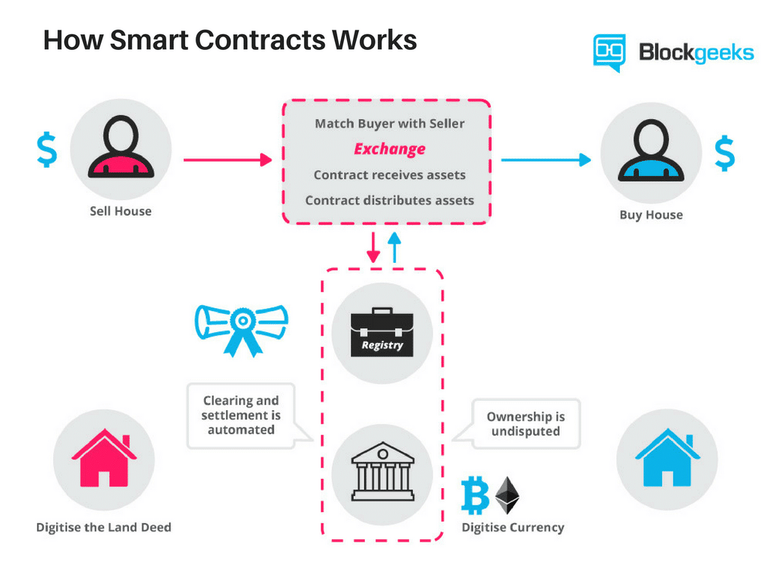
We've all heard the term 'Smart Contracts' thrown around quite a bit with the rise of the blockchain empire. I'm sure most people, like myself, know of them but are a bit fuzzy on the details and what exactly they can contribute to this whole movement. So I decided to dig a little deeper and see what makes them tick.
The technical description of a smart contract:
A smart contract is a computer protocol intended to digitally facilitate, verify, or enforce the negotiation or performance of a contract. Smart contracts allow the performance of credible transactions without third parties. These transactions are trackable and irreversible.
In other words they can be viewed as a system to help you exchange money, property, shares, or anything of value in a transparent, conflict-free way while avoiding the services of a middleman. Who wouldn't want a contract that executes all on its own, is impervious to tampering and manipulation, and can be completed in the blink of an eye? I think the consensus is that this way of doing things won't completely wipe out the middle man for everything, but could prove very useful in the every day tasks and monotonous operations of a wide variety of practices. No they won't wipe out the need for lawyers and notaries as a whole but I do think they may decrease the need to go through those channels as often as we do.
Simplicity is a big advantage using a smart contract. The ability to set exact terms, agreed to by both parties, to execute only if explicit perimeters are met, is a huge positive measure for using them. As soon as the contract executes, the deal is done. No waiting around for middle men. No waiting for mountains of paperwork to be manually processed. Everything will have been dealt with already. The contract is signed off and written to the blockchain; accessibility is available to view it, but it can never be altered. Very secure, very fast, very cheap. Important words for people and businesses alike.

Jerry Cuomo, vice president for blockchain technologies at IBM, believes smart contracts can be used all across the chain from financial services to healthcare to insurance. Anywhere there needs to be secure handshakes between two different parties, lies a use case for smart contracts.
An example of a specific use case according to Cuomo is this:
“UPS can execute contracts that say, ‘If I receive cash on delivery at this location in a developing, emerging market, then this other [product], many, many links up the supply chain, will trigger a supplier creating a new item since the existing item was just delivered in that developing market.’”
All too often, supply chains are hampered by paper-based systems, where forms have to pass through numerous channels for approval, which increases exposure to loss and fraud. The blockchain nullifies this by providing a secure, accessible digital version to all parties on the chain and automates tasks and payment.
An example of how a smart contract would work for buying/selling a property:

Like everything in this current crypto/blockchain industry, smart contracts are still early stages. Yes they are currently being utilized in a few business here and there but large scale adoption has yet to occur. Over time these contracts will become more and more robust. Able to take care of very complex and intricate situations. Templates are being developed to provide a 'plug and play' sort of system where any party can easily modify an existing contract template to be used to for whatever their personal needs are. In a world where things are moving faster and faster, smart contracts look to be a glue that will tie a lot of it together. Enabling complex processes to go on behind the scenes in the blink of an eye, governed by intelligent new artificial intelligence systems looks to be where the future is headed.
Sources: BlockGeeks, SearchCIO
I like your publications, they are great
Thanks for the reply friend.